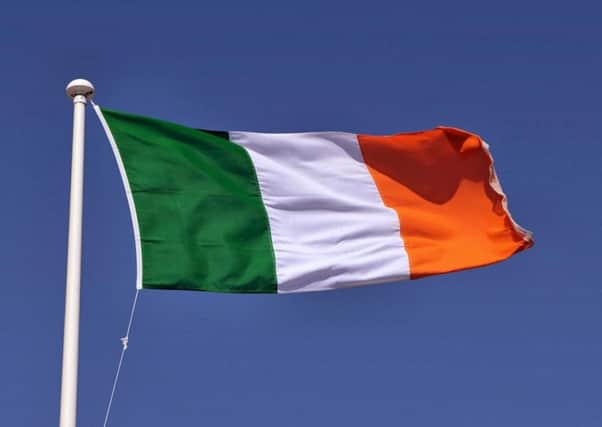Protestant culture in independent Ireland was ignored, not vilified


The foundation of his view is apparently the claim that up to 40,000 Protestants left immediately after independence in 1922 for involuntary reasons (ie that they were forced out).
This is not backed up by the most recent work by scholars and researchers such as David Fitzpatrick, Andy Bielenberg, Brian Hughes and Barry Keane.
Advertisement
Hide AdAdvertisement
Hide AdFurthermore, detailed analysis by others such as Marie Coleman and Miriam Moffitt shows that the decline was already in evidence before Irish independence.


The factors leading to this are a lot more complex than Mr Bury alleges.
It is virtually impossible, for instance, to disentangle the reasons for voluntary and involuntary economic emigration.
Marriage laws were more important than the compulsory Irish language rules, as Richard O’Leary has recently noted in your newspaper. The pre-independence Ne temere decree ensured a steady attrition, and much human misery – but the point is that no-one died.
This was not Bosnia. This was not ethnic cleansing.
Of more interest is to look at the positives. W
Advertisement
Hide AdAdvertisement
Hide Adhy did Protestants stay in the Free State at all if things were so bad?
There was always neighbourliness between the communities, even during the revolutionary period.
As early as 1963, Bishop Arthur Butler addressed the General Synod of the Church of Ireland. His title? ‘A confident minority’. No question mark.
In the rush to see the ‘Catholic State’ as oppressive and overbearing, it is often forgotten that the conservatism of independent Ireland was quite comfortable for many Protestants — like many Catholics, they were condemnatory of socialism and suspicious of statism.
Yeats & co didn’t exactly lead an army.
Advertisement
Hide AdAdvertisement
Hide AdOne instance was the Church of Ireland Gazette’s characterisation of the 1951 mother-and-child scheme as ’communist interference in the family’.
Protestantism — the prosperous parts, anyway — was willing to accept some of the Catholic state’s wisdom (for instance in relation to balanced budgets, modernising of local administration, suppression of jobbery, education management reform and protectionism) and the important fact that it was a guarantor of order.
In 1936, the voice of southern Protestantism, the Irish Times, was moved to write that ‘On many points of policy we agree, more or less cordially, with Mr de Valera’.
Protestants were largely left to their own devices, and they had the social, cultural and economic structures and resources to support a vibrant, if somewhat introverted, community life.
Their culture was ignored, rather than vilified.
Advertisement
Hide AdAdvertisement
Hide AdThey lived in a parallel world — the ‘Protestant Free State’, we might call it.
Up to 1949, they could still be royalists if not loyalists – and when the Republic was declared, generational change had broadly worked its magic.
Constant ‘low intensity unhappiness’, as Mr Bury believes, was never the default.
Southern Protestants engaged with the contemporary, and got on with their lives, as people do.
Advertisement
Hide AdAdvertisement
Hide AdNo-one denies that a number hankered after the old days, and were peeved that their business acumen and resources were not taken up by the new state.
But this did not result in any attempts to deny the legitimacy of the state and overthrow it by violence – unlike the situation north of the border.
By and large, southern Protestants, if they were unhappy, kept it a private matter.
In public, they exhibited a careful loyalty to the new state, and participated where and when they could.
Advertisement
Hide AdAdvertisement
Hide AdThe state, for its part, may have had an annoying public Catholicity from time to time, but it was scrupulous in cossetting its minority, for fear that it would up sticks and leave, taking its talents (and its shekels!) with it.
And it was from de Valera that Trinity College finally got a state grant.
This is the other side of the story – one of acceptance and integration, of being part of the modern Ireland.
With Dr Ida Milne, I am co-editing a book of essays, ‘Protestant and Irish – the minority’s search for place in independent Ireland’ (Cork University Press) to be published in a few months.
Advertisement
Hide AdAdvertisement
Hide AdIt will not shirk addressing the awkward questions — but it will point up the nuances and complexities of Protestants’ experience in the new state.
And, after all, they have gotten from there to here with relatively little angst or disruption.
They are not paranoid about their future. They are a ‘confident minority’ now.
There have to be reasons for that.
Ian d’Alton, Naas, Co Kildare
• Ian d’Alton is a Protestant, brought up in south Dublin and Cork. He is a member of the Church of Ireland, and its Historical Centenaries Working Group Formerly CEO of an Irish state-owned agency, he is an historian who has published widely on southern Irish Protestantism from the eighteenth to the twentieth centuries